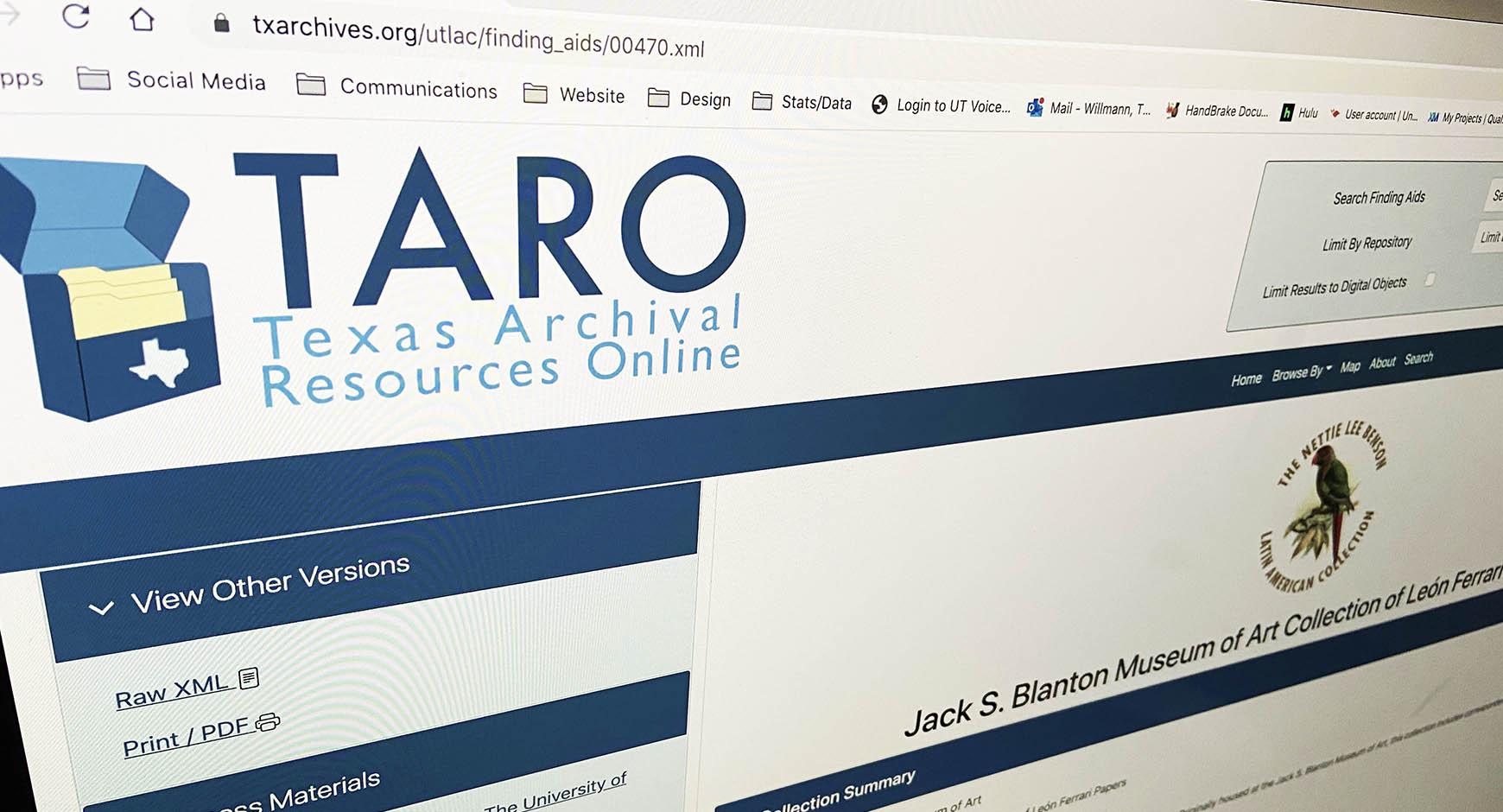
AUSTIN, Texas — The University of Texas Libraries and a consortium of partner institutions have completed a multi-year project to update the web portal for Texas Archival Resources Online (TARO), the principal reference site for discovering the contents of special collections and archives across the state of Texas.
TARO provides researchers and scholars worldwide with access to collection descriptions of archival primary sources in libraries, archives and museums by hosting up-to-date finding aids – tools that help a user find information in a specific record group, collection or series of archival materials – for resources included in the collections of member institutions.
The administrators of TARO received an implementation grant for $348,359 from the National Endowment for the Humanities (NEH) in 2019 to fund the modernization of the site, which was established with a research grant from the Telecommunications Infrastructure Fund (TIF) Board of the State of Texas in 1999. The University of Texas Libraries spearheaded the initial effort to build the resource in the early 2000s, with project partners including the Texas Digital Library Alliance, Rice University, Texas A&M University, Texas State Library and Archives, Texas Tech University, University of Houston and the Harry Ransom Center at the University of Texas at Austin.
With the original grant funds, the Libraries and its collaborators established the TARO website, outsourced encoding of several hundred finding aids and provided training to member repositories. Repositories began contributing their own hand-coded finding aids in 2002. The UT Libraries continued to support TARO after the site’s initial launch, and in June 2018 TARO formalized the UT Libraries as the institutional home of the project.
The redesign of TARO includes public site improvements to provide a modern web experience on both desktop and mobile and enable users to better access the collections of the member repositories to browse or limit their search by geographic area, language, subject or date.
The redesign also includes a new administrative site that allows the members to update and manage their repository and finding aid data, with improved finding aid publishing and indexing that places their publishing process into their control.
Additionally, repository account creation has been streamlined and can be done by TARO administrators without the assistance of developers, and the addition of a Content Management user type allows for editing repository information for associated repository accounts.
Project development occurred at The University of Texas at Austin with substantial effort contributed by the TARO steering committee and its subcommittees, as well as in coordination with the staff at all of the TARO member institutions. Collaborators worked to remediate the entire finding aid collection in order to enable the new browse and search methods by ensuring consistent adherence to a base set of criteria.
“TARO is essential for unearthing the treasures held by archiving institutions across Texas,” says Vice Provost and Director of the University of Texas Libraries Lorraine Haricombe. “The enhancement of this resource will make discovery of primary resources throughout the state more efficient and effective for researchers, and will accelerate scholarship that originates from their work.”
TARO currently supports 70 repositories, representing collections content measuring in the millions of individual items.

ABOUT THE NATIONAL ENDOWMENT FOR THE HUMANITIES
Created in 1965 as an independent federal agency, the National Endowment for the Humanities supports research and learning in history, literature, philosophy, and other areas of the humanities by funding selected, peer-reviewed proposals from around the nation. Additional information about the National Endowment for the Humanities and its grant programs is available at: www.neh.gov.
Any views, findings, conclusions, or recommendations expressed in this article, do not necessarily represent those of the National Endowment for the Humanities.


